Contents
What is Formula in Salesforce
What is a Formula in Salesforce
Salesforce is a powerful Customer Relationship Management (CRM) platform that helps businesses track and manage customer relationships and sales processes. Within Salesforce, formulas are essential tools that allow users to perform calculations, manipulate data, and display results based on specific conditions.
Formulas in Salesforce are similar to those in spreadsheet programs like Excel, but they are much more powerful and dynamic. With formulas, you can automate complex tasks, calculate fields based on other field values, and even create dynamic content that updates in real-time.
Why Use Formulas in Salesforce?
Benefits of Formulas in Salesforce
Formulas enhance the efficiency of business processes by allowing automation, real-time calculations, and data manipulation without the need for coding. They help create better workflows, enabling you to:
- Automate calculations: Automatically calculate values such as discounts, commissions, or totals.
- Create dynamic content: Display data based on user inputs or changes in the system.
- Enforce data integrity: Ensure that fields are filled out correctly by checking inputs with formula validation.
Key Areas Where Formulas Can Be Used
Salesforce formulas can be applied in various fields, including:
- Validation rules: Ensure the correctness of entered data.
- Automation: Trigger workflows, approvals, or alerts based on calculated conditions.
- Reporting: Create custom reports that include calculated fields.
Types of Salesforce Formulas
Simple Formulas
These formulas are used for basic calculations, such as adding two numbers or checking if a checkbox is checked.
Advanced Formulas
Advanced formulas involve complex logic, including nested IF statements, cross-object references, and multiple functions to create dynamic fields.
How to Create a Formula Field in Salesforce
Here’s a simple step-by-step guide on how to create a formula field in Salesforce:
Login to Salesforce Account

Click Gear icon Navigation to Salesforce Setup
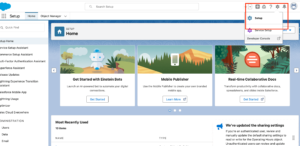
Select Object manager 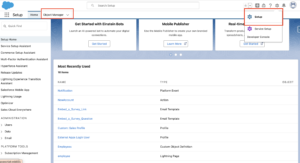
What is Formula in SalesforceSelect Object
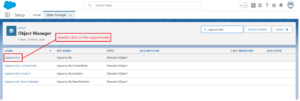
Select formula field
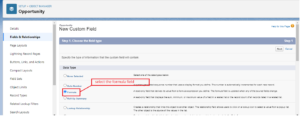
Write A formula block
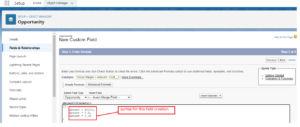
Click and Save
Understanding Salesforce Formula Syntax
Basic Syntax Rules
- Brackets: Use parentheses to structure formulas properly.
- Data Types: Ensure the correct data type (text, number, date, etc.) for fields involved in the formula.
Common Formula Functions
- IF statements: Create conditions within the formula.
- ISPICKVAL(): Check picklist values.
- BLANKVALUE(): Handle null values in the formula.
Using Mathematical Functions in Formulas
Formulas support basic arithmetic operations, making them ideal for financial or operational calculations.
- Addition (+): Add two or more numbers.
- Subtraction (-): Calculate the difference between two values.
- Multiplication (*): Multiply values to derive totals.
- Division (/): Divide values to calculate averages or percentages.
Practical Example
If you need to calculate a discount:
Date and Time Functions in Salesforce Formulas
Calculating Dates
Date functions allow you to perform calculations like finding the number of days between two dates or adding/subtracting days from a specific date.
- TODAY(): Returns the current date.
- DATE(): Creates a specific date based on year, month, and day values.
Examples of Date-Based Formulas
To calculate the number of days since an account was created:
Logical Functions in Salesforce Formulas
IF Statements
The IF function is widely used in formulas to check conditions:
AND, OR, and NOT Operators
These operators help evaluate multiple conditions in a single formula:
Changing Text Case
You can manipulate text by converting it to uppercase or lowercase:
- UPPER(): Convert text to uppercase.
- LOWER(): Convert text to lowercase.
Cross-Object Formulas in Salesforce
Cross-object formulas allow you to reference fields from related objects in your formulas. For example, you can pull data from an account into an opportunity formula.
How They Work in Salesforce
Cross-object formulas work by navigating relationships between different Salesforce objects to access and calculate values across records.
Common Use Cases for Formulas in Salesforce
- Lead Scoring: Assign a score to leads based on certain criteria (e.g., demographics, engagement).
- Opportunity Management: Calculate expected revenue based on opportunity stages.
- Custom Calculations: Automate calculations for custom pricing, commissions, or financial reporting.
Formula Limits and Best Practices
Salesforce imposes limits on formulas, such as a limit on characters, complexity, and relationships involved.
Tips for Optimizing Formulas
- Minimize complexity: Avoid using deeply nested logic.
- Test your formulas: Always verify formulas in a sandbox before implementing them in production.
Troubleshooting Formula Errors
Common Formula Errors
- Syntax Errors: Incorrect use of functions or operators.
- Data Type Mismatch: Attempting to perform operations on incompatible data types (e.g., text and number).
How to Fix Them
Use error messages to identify the issue and rework the formula step-by-step.
Automating Business Processes with Formulas
Formulas play a crucial role in automation, such as:
- Workflow Rules: Trigger tasks or notifications based on formula evaluations.
- Approval Processes: Create approval processes based on calculated values.
Examples of Automation
For instance, automatically assigning an opportunity to a sales rep if the potential value exceeds a certain amount:
Conclusion
Salesforce formulas are powerful tools that bring automation, dynamic content, and accuracy to your Salesforce environment. By understanding how to create and implement formulas effectively, you can optimize your Salesforce instance and drive better business results.
We Want to more about What is Formula Field in Salesforce Click Here
FAQs
What is the difference between a simple and an advanced formula?
Simple formulas perform basic operations, while advanced formulas use complex logic and cross-object references.
How do I create a formula in Salesforce?
Navigate to the object manager, create a new field, select ‘Formula,’ and define the logic.
Can I use formulas in reports?
Yes, you can use formulas in custom reports to calculate and display specific data.
What are cross-object formulas?
Cross-object formulas allow you to reference fields from related objects in a formula.
What are the limits of formula fields in Salesforce?
Salesforce imposes limits on formula length, complexity, and the number of objects involved in cross-object formulas.
In our next blog post we will discuss about Roll-Up Summary Fields in Salesforce








[…] In our next blog post we will discuss about What is Formula in Salesforce […]
[…] our previous blog post we had discussed about What is Formula in Salesforce. In these blog post we discuss about Roll-Up Summary Fields in […]